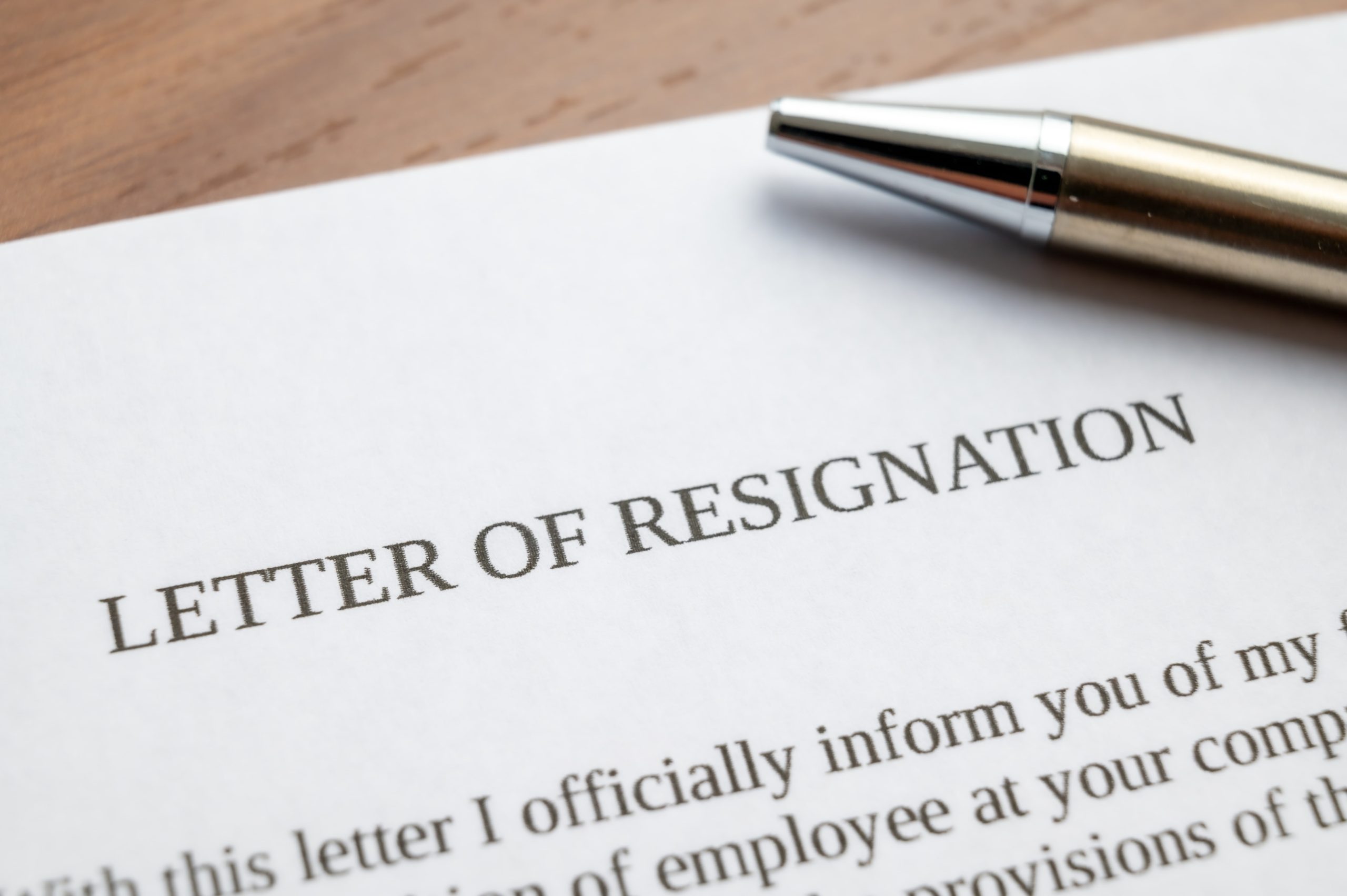BLOG
What happens if an employee resigns during the disciplinary process?

Employees who resign to avoid the consequences of disciplinary action may cause implications for employers. In this blog, we’ll provide insights and guidance for employers dealing with these unique challenges.
If an employee is midway through a disciplinary process and suspects that dismissal is imminent, they may feel that resigning is their only option to save face and maintain their reputation.
Whether it’s better to quit than be fired is open to debate. However, if reputation is the employee’s primary concern, leaving on their own terms allows them to frame their departure in a more positive light to a prospective employer.
But where does this leave employers? Do you have to accept the resignation? Do you abandon the disciplinary process or continue full steam ahead? Do you have to provide them with a reference?
Here’s what you need to know when an employee chooses resignation during a disciplinary procedure.
Can I refuse the employee's resignation?
It’s a common misconception that an employee’s notice of resignation isn’t valid unless it has been “accepted” by the employer. The truth is that whether you want to or not, you cannot reject someone’s resignation if they have provided you with the appropriate amount of notice.
Notice periods should be laid down in the employee’s contract of employment. If there is no such provision in the contract and the employee has been employed for one month or more, the legal minimum amount of notice they must give is one week.
The common law position is that an employee’s notice is effective as soon as it is given to the employer. From that point onward, it can’t be refused by the employer or withdrawn by the employee without the other’s agreement.
You can ask an employee to confirm their resignation writing; however, unless this is required under their contract of employment, there’s no legal requirement for notice of resignation to be given in a particular form, and no requirement for notice to be given in writing before it takes effect.
Do you need support?
Speak to us for an honest, no obligation chat on:
0345 226 8393 Lines are open 9am – 5pm
Should I push on with disciplinary?
Whether or not you should continue the disciplinary procedure will depend on whether the employee has resigned with notice or resigned with immediate effect.
If the employee gives notice of their resignation, you should continue the process. It may be that they’ve committed an act of minor misconduct which only results in a warning, in which case there will be no repercussions on the individual. However, if the disciplinary process determines that the employee has committed an act of gross misconduct, such as theft, physical violence, gross negligence or serious insubordination, they can be summarily dismissed (in other words, dismissed without notice). This will supersede their resignation, and the reason for the termination of the employment relationship will be deemed as dismissal for gross misconduct rather than resignation.
If the employee resigns with immediate effect, you are unlikely, in most circumstances, to need to continue the process. However, you should retain notes of the disciplinary procedure as this will help you to defend any subsequent claims made to an Employment Tribunal by evidencing the steps taken and demonstrating that you followed a fair procedure. In certain circumstances (for example, when there is a safeguarding issue in the care or education sectors), you may still need to reach a conclusion and can offer the option to the former employee to continue to be involved in the process.

What should I include in the employee's reference?
One of the primary reasons employees decide to resign when facing a disciplinary process is the prospect of receiving a more satisfactory reference if they leave of their own accord before an outcome is reached.
Do I need to provide a reference?
While some exceptions apply, generally speaking, there is no duty on employers to provide a reference to a former or current employee.
If you do choose to provide a reference…
This can be as brief as you like. You don’t have to go into detail; it’s quite typical for references to simply state an employee’s job title and the dates of their employment.
Can I provide a bad reference?
It’s often mistakenly believed that employers can’t provide a bad reference by law – but that’s not strictly true. You must, however, ensure that the information you supply is fair, truthful, accurate, and not misleading.
For example, if the employee was disciplined during their employment, you can include this within their reference provided the information you give is accurate. You must also exercise fairness when deciding what to include in the reference, meaning you can’t say that an employee was investigated for stealing if the investigation concluded that they hadn’t done it.
Related Content
Sign up for the latest news & insights
Need support dealing with disciplinary?
WorkNest’s Employment Law experts can guide you every step of the way through a fair procedure, ensuring you can resolve disciplinary issues quickly without leaving your organisation exposed. We can also help you to develop a clear and robust disciplinary policy to provide a transparent framework for managing workplace misconduct and promote consistency, fairness, and employee accountability.
And if you’re daunted by the prospect of managing hearings, investigations or appeals, our seasoned HR Consultants can be parachuted in to conduct these for you. They can even train your team so that they are better equipped to handle these matters fairly and effectively in future.
To discuss your specific situation and possible solutions, contact us on 0345 226 8393 or request your free consultation using the button below.









